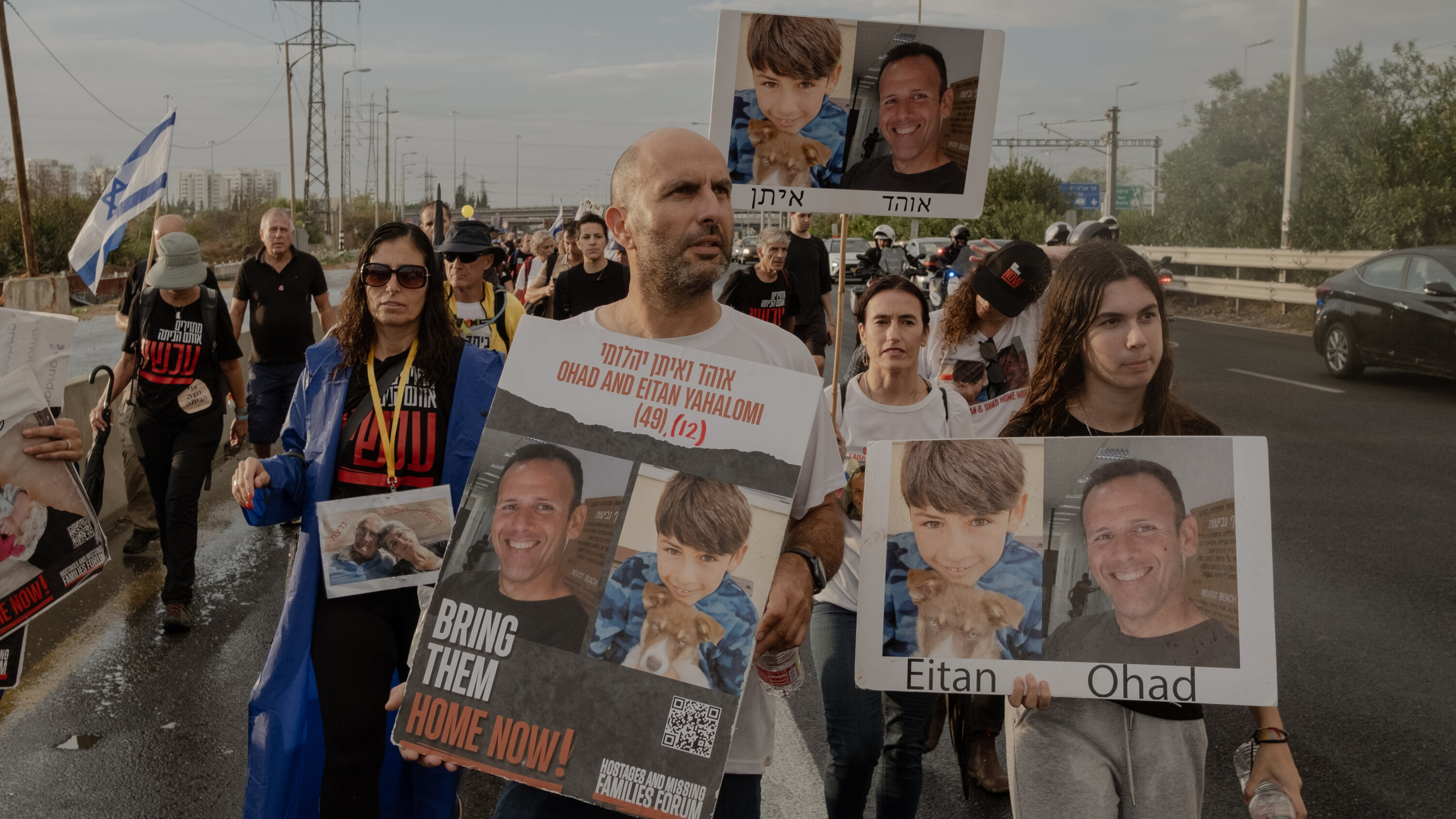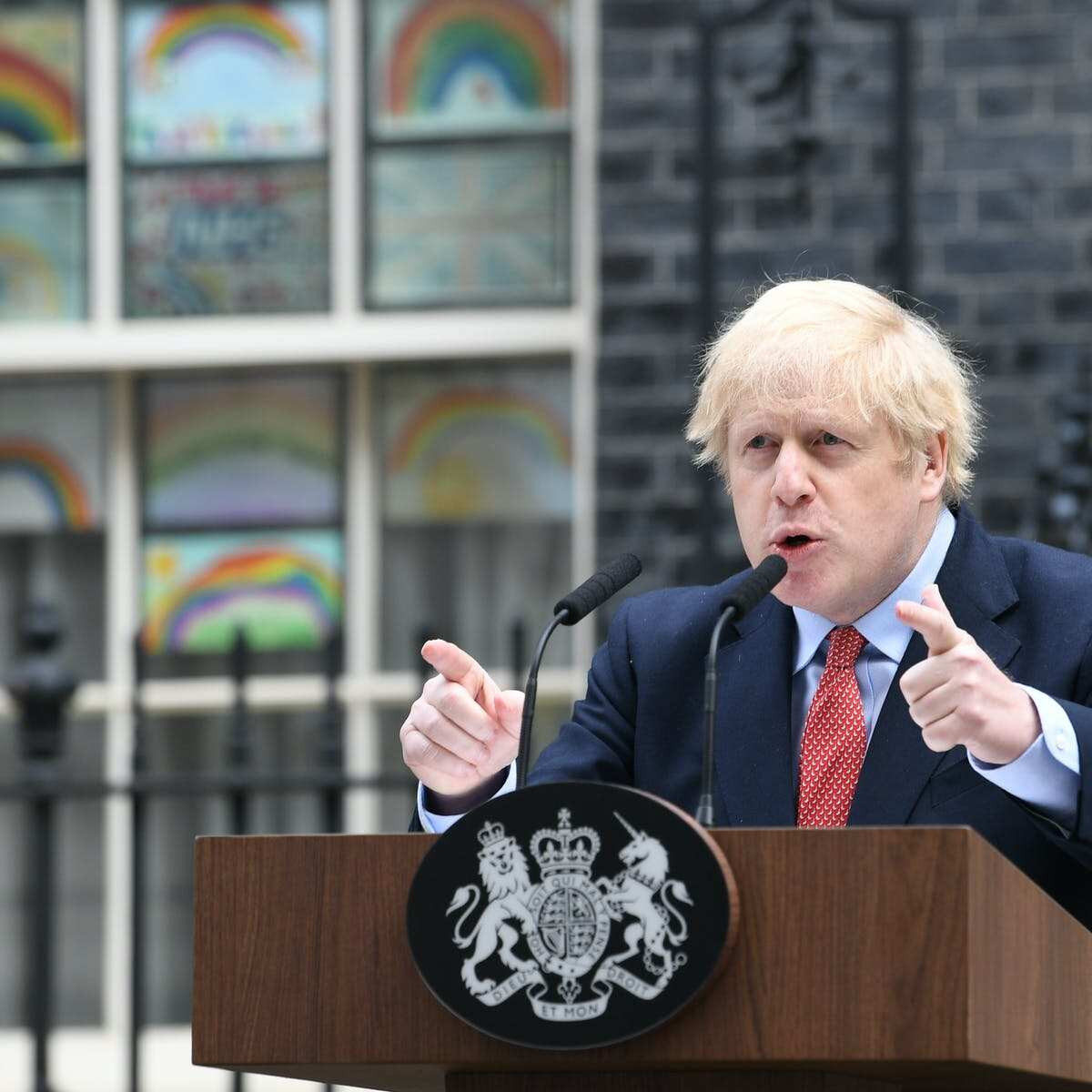As August slips into September, a deal to release the hostages held by Hamas for nearly 11 months seems no closer than it was in July, June, or April. This is despite senior US officials saying just two weeks ago that such a deal was “imminent.”
The ongoing stalemate not only profoundly affects the hostages and their families but also has broader implications in various areas. Here is a look at a few of them:
The Political Stakes: A Deal Could Trigger New Elections
A prevailing view is that a hostage deal or ceasefire that would end the war and necessitate a full Israeli withdrawal from the Gaza Strip would inevitably bring down the government. Bezalel Smotrich’s Religious Zionist Party and Itamar Ben-Gvir’s Otzma Yehudit have signaled their intent to oppose such a deal.
Smotrich, currently in the powerful and influential position of finance minister, has to be taking note of the polls that show his party has a good chance of not getting past the electoral threshold and making it into the Knesset next time, or even if it does, at best only securing four seats (currently it has eight).
Ben-Gvir, too, is likely considering polls showing that a center-right government could be formed without his party, especially if a new right-wing party led by Naftali Bennett were to emerge.
If a hostage/ceasefire deal is signed, it is uncertain whether Ben-Gvir or Smotrich would choose to bring down the government, knowing that doing so could result in political isolation or relegation to the opposition.
Nevertheless, Ben-Gvir’s continuous posturing regarding the Temple Mount – setting himself up as the defender and fighter for Jewish rights on the Temple Mount despite the complications this creates for Israel in the Muslim world and on the international stage – appears to be a transparent effort to energize his base and appeal to those on the Right who in the last elections voted for other right-wing parties. His actions at such a sensitive time suggest a strategic move, possibly indicating that he anticipates new elections in the near future – new elections he may trigger.
It is for this reason that Prime Minister Benjamin Netanyahu’s many detractors say that he is reluctant to sign any deal, because it would lead to the end of his government, new elections, and – if the polls are to be believed – an end to his long reign as prime minister. (On September 27, Netanyahu will have served as this country’s prime minister – over three different terms – for fully 17 years, or some 22% of the country’s entire history.)
Those saying that it is out of political expediency that Netanyahu is not signing a deal are attributing to him the absolute worst motivations: that he is willing to let his fellow citizens languish in Hamas’s tunnels and extend the war – meaning more Israeli soldiers will be killed – just so that he can cling to office.
The country’s polarization over Netanyahu makes those claims credible for a good part of the nation, and they dismiss the possibility that two other factors may be in play.
Hamas’s Role: Holding Hostages as Human Shields
One is that it is Hamas chief Yahya Sinwar – not Netanyahu – who is preventing a deal, making maximalist demands and aiming to hold on to a significant number of hostages as his personal human shields to prevent the IDF from killing him.
Security Concerns: A Genuine Fear or a Power Play?
The second possible factor, largely dismissed by Netanyahu’s detractors, is that his standing firm on several conditions is not because of a desperate desire to stay in power (and even out of jail as a result of his ongoing legal problems) but, rather, out of a genuine concern for the country’s security.
Specifically, that Netanyahu might sincerely be concerned that withdrawing from the Philadelphi Corridor and allowing unfiltered access for Gazans back to northern Gaza across the Netzarim Corridor would enable Hamas to regroup, rearm, and recover to fight against Israel another day – maybe not next month or next year, but at some time in the future.
In recent weeks, various senior security officials and former generals have either been quoted as saying or said explicitly that Israel could address Netanyahu’s security concerns – that it could retake the Philadelphi Corridor if need be and neutralize any terrorist who may use northern Gaza as a staging ground for attacks against Israelis.
In the media’s general framing of this debate, what emerges – at least from watching Channels 11, 12, and 13 – is a belief in the generals and skepticism of Netanyahu and the politicians.
There is something ironic in this, in that this same group of generals and retired generals turned think tank fellows largely said before October 7 that the enemy was deterred. While October 7 should have created a degree of skepticism regarding what the generals and former generals say, when they are paired off against Netanyahu, they – at least in the media – are seen as much more credible.
The Stalemate: Lack of Public Outrage
The stagnation in the hostage talks has intensified these debates.
Tellingly, however, it has not led to a swelling of the ranks of those joining the protests in the streets, which continue at about the same level – and with the same organizations and personalities involved – as has been the case for months.
Often fiery rhetoric about the alleged callousness of Netanyahu and the government in not paying any price for a deal has not led to massive protests in the streets similar to those during the judicial reform debate last year. One possible reason is the binary framing of the issue – that an unwillingness to pay any price means a lack of concern for the hostages or the suffering of their families – has not resonated with the broader public.
The US Role: A Deal as a Political Lifeline?
US officials, not Israeli or even Hamas spokespeople, are the ones who drove the narrative earlier this month that the US had put forward a bridging proposal and that a hostage/ceasefire deal was just around the corner.
It wasn’t, but the fact that it was being discussed just before and during last week’s Democratic National Convention in Chicago was not without political significance.
It is no secret that Israel, in general, and the war in Gaza, in particular, are bones of contention inside the party. One way to skirt the issue, to avoid having to deal with it head-on, was to create the impression that a deal was nearly at hand and that all that was needed was for all parties involved to just make a little more effort, and it would materialize.
This way, the voices inside the party angry at US President Joe Biden for the administration’s unstinting support for Israel could be rebuffed by saying that the US was working around the clock to end the war and bring the hostages home. Likewise, the administration could gain points with the pro-Israel elements inside the party who want to see the hostages freed.
Politically, in terms of the convention, the buzz of an imminent deal was a win-win situation. How wonderful indeed would it be if the agreement occurred; but even if it did not, generating the impression that it might created a degree of political calm for the party at its marquee event – the quadrennial convention.
The current stalemate in the negotiations, however, is problematic for the administration and the Democratic nominee, Vice President Kamala Harris.
Beyond wanting a hostage release for the sake of the hostages, the administration – and Harris – would like to see it soon, as it could benefit the Democrats in the upcoming election. Securing a hostage deal and a ceasefire now would be an achievement they could brandish before the voters: “Look what our tireless efforts accomplished.”
A Wider War Looms: A Dilemma for the Democrats
A wider Middle East war at this time, a war that may necessitate the use of American force that is concentrated in the region, is not the way the Democrats want to go to the ballot box in November.
A hostage deal could stave off that eventuality; a lack of one – meaning no ceasefire – leaves the door open to a broader regional conflagration that could suck the Americans in at a most inopportune moment in the US political calendar.
The Military Actions: Preemptive Strikes and a Shift in Strategy
Israel embarked this week on two significant military actions.
The first action was the preemptive strike on Hezbollah early Sunday morning, targeting hundreds of rocket launchers that were prepared to fire thousands of rockets and missiles at Israel.
The second action was Operation Summer Camps, launched shortly after midnight on Tuesday at four locations in Samaria and the Jordan Valley. This operation aimed to degrade the developing terrorist infrastructure in the West Bank, which has been growing with Iran’s prompting and active assistance.
The first strike against Hezbollah targets likely would not have taken place had the hostage talks led to fruition, the hostages been released, and a ceasefire been called.
The prevailing assumption is if there is a ceasefire in Gaza, Hezbollah will stop firing on Israel – which it started doing on October 8 – and that Israel would respond to quiet with quiet of its own, while working through diplomatic means to move Hezbollah’s terrorists and rockets north of the Litani River.
There is a school of thought that maintains that Hezbollah actually held back its decision to fire rockets at Israel in retaliation for the killing of its chief of staff, Fuad Shukr, earlier this month until it was clear where the hostage talks were going. Once it appeared the talks were going nowhere, the terrorist organization planned to attack – an indication of how it is linking its fate with that of Hamas in Gaza. If Hamas fires, it fires; if Hamas stops, it will stop.
The other major action was in northern Samaria. While a ceasefire in Gaza would likely reduce the military activity in the north – at least temporarily, pending an appraisal of whether Hezbollah could be moved through diplomatic means out of southern Lebanon – the same is not true in the West Bank.
The IDF acted in Jenin, Tulkarm, Tubas, and the Jordan Valley refugee camp Far’a in a manner not seen since Operation Defensive Shield in 2002, in order to forestall the Gazafication of the West Bank.
Over the past several years, with Iran’s help, Hamas and other terrorist organizations have built a substantial terrorist infrastructure in the region. Iran has provided financial and material support, including smuggling cash and weaponry. This infrastructure includes labs for manufacturing improvised explosive devices, which can be used against both IDF troops and civilian targets.
In the West Bank, a ceasefire in Gaza is not expected to affect the IDF’s intensive activities to stamp out the terrorists’ capabilities before they metastasize into something far more harrowing. Even with a ceasefire in Gaza, these activities against the terrorist infrastructure in Judea and Samaria are expected to continue apace.
Similar efforts to combat terrorist infrastructure in Judea and Samaria were less intense even a year ago due to concerns that they might provoke rocket and missile attacks from Hamas in Gaza. However, after nearly 11 months of significantly degrading the terrorist organization’s capabilities, this risk is no longer as great a concern.
The Troubled Negotiations: A Deal That May Only Bring Back a Handful of Hostages
ABC News spoke with U.S. officials familiar with the difficult ongoing talks.
Under the terms of a proposed Gaza cease-fire and hostage release deal, Israel could see only around a dozen captives taken during Hamas' Oct. 7 attack returned home alive during the initial weeks of the agreement, according to several U.S. officials familiar with the ongoing negotiations.
The unfavorable return for Israel is viewed by the Biden administration as a major impediment to brokering an end to the conflict, and one of the factors fueling the renewed urgency of its campaign to push talks over the finish line.
The White House says negotiations resumed in Egypt this week, but so far mediators have been unsuccessful in their efforts to encourage Hamas to sign onto a bridging proposal that Israel has agreed to which aims to get talks back on track.
“We'll never give up on it, but the challenge is the longer this goes on, the more hostages will suffer -- possibly perish -- and the more other things happen that could make things impossible,” Secretary of State Antony Blinken said during a visit to Israel on Monday.
Documents reviewed by ABC News detailing the framework for an agreement, which was partially outlined in a late May address by President Joe Biden, stipulate that Hamas must turn over 33 Israeli hostages in the 42 days after the deal is enacted -- including all living Israeli women, children, men over the age of 50, as well as wounded and ill male civilians under the age of 50.
However, in the event Hamas cannot provide 33 living hostages that fit the criteria, the proposed terms allow the militant group to fill the quota by turning over the remains of hostages in these categories.
Out of the 109 hostages still believed to be held in Gaza, Israeli authorities publicly say about 70 captives could still be alive. But four U.S. and Israeli officials say the actual number of living hostages is assessed to be about 50 and that only a fraction of them are either women or old enough to qualify as elderly under the terms of the proposal.
Israel has provided mediators with a list of all the individuals it wants Hamas to turn over in the initial weeks of a deal which includes civilian men under 50 that are believed to be alive but injured or ill. However, two U.S. officials familiar with negotiations anticipate that the militant group will be reluctant to hand over any of the younger men before reaching the second phase of the agreement regardless of their condition.
Since creating the framework, officials say Israel has added new conditions that Hamas rejects, including refusing to withdraw Israel Defense Forces from strategic areas of Gaza and insisting on screening Palestinians returning to their homes in the northern part of the enclave for weapons.
After initially denying that any changes were made to the proposal, Prime Minister Benjamin Netanyahu now admits to adding conditions he says are red lines and has reportedly expressed skepticism that a deal can be reached.
Several senior Israeli officials say Netanyahu is the driving force behind the new demands and have indicated the security benefits from the additional conditions are negligible when compared to the urgent need for a hostage deal and a cease-fire.
On Wednesday, Israeli Defense Minister Yoav Gallant visited IDF troops at the Philadelphi corridor between southern Gaza and Egypt and suggested there was no reason to continue occupying the area.
“The most important thing is to remember what the goals of the war are and to stick to them,” he said. “The Rafah Brigade has been defeated.”
“The Rafah Brigade has been defeated,” Gallant continued, referring to Hamas’ battalions that previously operated in the southern Gaza city.
Gallant has also described reaching a deal to release the hostages as “an urgent, moral imperative” in recent days -- a position that sparked public backlash from Netanyahu.
U.S., Israeli and Egyptian officials met on Thursday to discuss options for securing Gaza's border with Egypt and reopening the Rafah crossing, according to an official familiar with the plans.
National Security Council spokesperson John Kirby said on Friday that those conversations had already been “constructive” and denied that talks were at risk of breaking down.
“There's been press reporting out there that, you know, they're near collapse. That is not accurate. There has been progress made. We need now for both sides to come together and work towards implementation,” he said.
But the shrinking incentive for Israel to shift its position was illustrated this week when IDF troops retrieved the bodies of six hostages in the Gaza Strip. Five of those recovered were already thought to be dead, but one -- 79-year-old Avraham Munder -- was presumed to be alive before his remains were found.
In previous rounds of the on-off talks, officials say Israel has pushed for Hamas to provide a list of the hostages that would be returned as part of a deal before striking an agreement, but the militant group has refused to do so.
In November 2023, Israel and Hamas reached an agreement to exchange at least 50 women and children held in Gaza for 150 Palestinian prisoners and truce lasting at least four days.
Hamas ultimately released more than 100 Israelis and foreign nationals, prolonging the pause in fighting, but officials say the group eventually refused to free any additional women and fired on Israel, which lead to the resumption of the war.

















